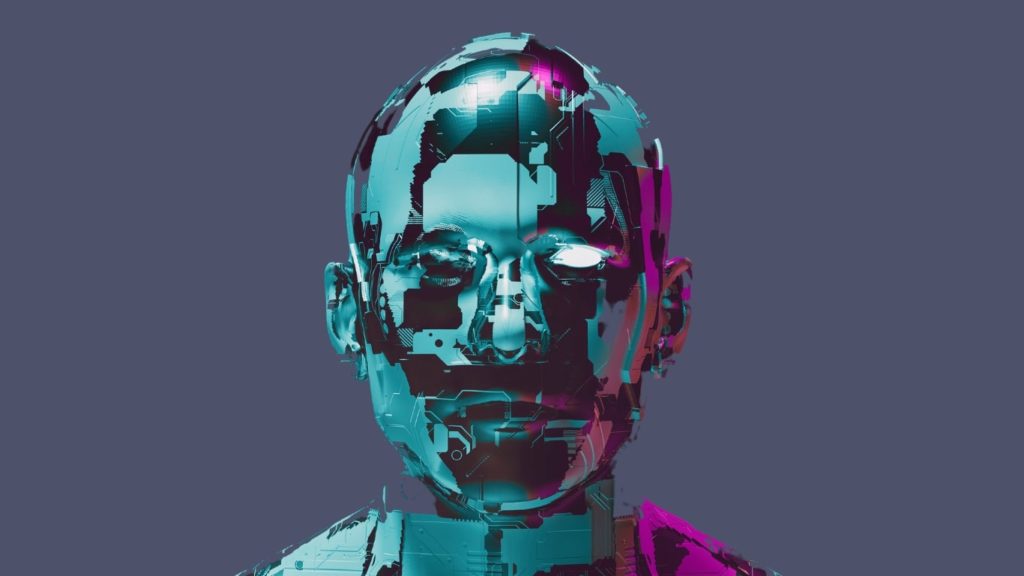
Technology dominates the modern world and the future is going to be about technological advancements. Amidst this, scientists and researchers are contemplating the idea of achieving immortality through technology. We humans get to live at the cost of inevitable death. However, advancement in technology has allowed us to live longer. This has further prompted us to explore the possibility of everlasting life, and therefore the investments in research and development of these projects.
But the questions remain, “What does immortality entail, and can technology make us immortal?” Let’s answer these inquiries in the next section.
How do we define immortality?
Immortality is defined as the concept of living in a physical or spiritual form for an infinite length of time, without experiencing death.

There’s debate on the actual definition of immortality. This is because even if humans aim to upgrade their brains and bodies, they cannot live beyond the end of the universe. While it’s unlikely that any of us would witness the end of the universe, the thought itself hampers the idea of immortality.
That makes us wonder whether we can survive that event. Also, some argue that immortality is already achieved. They say this in comparison to philosophers and great people, who are not among us, but their creation still has an influence on us. They are people who “survive” death through their legacy.
Digitalization of human minds
When it comes to immortality, different schools of thought have distinct beliefs. The philosophical-thinking people believe that the human mind and body are separate. With this belief, the idea of immortality cannot be turned into reality as the essence of the human spirit cannot be digitized.
However, those who believe human life is merely physical are hopeful that the brain can be preserved to digitize, eventually allowing people to remain alive or be reborn. In simplest terms, our cells age, which is why our body does too. The advancements in technology have allowed us to live longer.
However, scientists anticipate that once we reach a certain age, the body will lose resilience. This means the body will be unable to recover from injuries or illness, thereby leading to death. But even if in some ways we can stop the cell from aging and get the ability to prevent disease, there are other factors that can harm the body. One of these is the external environment.
Humans are prone to deadly accidents and drastic climate change which has a direct impact on them. Scientists and researchers have thought this through and suggested several options for dealing with these issues. Let’s analyze some ways in the following section.
Technological ways of achieving immortality
As you can see, we don’t necessarily need to remain physically alive to achieve everlasting life. Here are some ways scientists and researchers propose technology can make us immortal.
1. Virtual immortality
Researchers are exploring the path of reaching virtual immortality by scanning the human brain and transferring it into a computer. In fact, in the OpenWorm project, the neural connections of the roundworm were mapped into the software. This software was then programmed to direct a Lego robot, which appeared to behave like a roundworm.
While there’s no comparison as roundworms have 302 neurons and a human has 86 billion, it might still be achievable with more advancements in Artificial Intelligence. Being able to transfer the human mind into a computer and uploading it to the internet would be a major step in achieving immortality.
However, there’s a paradox with the concept of uploading the human mind. As described in a thought experiment, the human mind may or may not survive the upload process. In the case of survival, then the digital copy can’t be that person as they are still alive. Whereas, if the human mind doesn’t live through the upload process, then it won’t be that person but only their digital double.
Furthermore, there are several risks associated with digitizing. The replacement of physical reality with digital one would require a lot of computational power. Also, there’s no guarantee that the digital realm won’t be switched off or deleted.
2. Turning into a cyborg
You might have heard about cyborgs or cybernetic organisms from sci-fi movies. It is one potential way of achieving immortality. People consider the human body as a weakness so replacing it with technology promises a better future. Over the years, people have incorporated technology into their bodies.

For instance, Dr. Peter Scott Morgan turned himself into a human cyborg when he was diagnosed with Motor Neuron Disease. He underwent complex surgeries including a laryngectomy and inserting a nasogastric tube directly into his stomach. He did so to take the vital functions away from the organ which would fail because of the diagnosis.
Also, he operates the computer with his eyes through eye-tracking technology. While existing scientific evidence showed that people with Motor Neuron Disease can survive only a few years after the diagnosis, Dr. Peter Scott Morgan is changing that by deciding to exist as a cyborg.
He is currently 64 years old and is hoping to be alive at least until he turns 80 using technology. Cyborgs are often termed as hybrid beings, half human and half machine. Some even refer to them as creatures of social reality and fiction.
Another example of a cyborg is Neil Harbisson. He was born color-blind, which changed when he had an antenna implanted in his skull. With this antenna, he can see infrared and ultraviolet, sensing colors that cannot be detected by the eye. Also, he is the world’s first legally recognized cyborg.
The public is accepting of the idea of technology and human body union for medical reasons. But, when it comes to experimentation and artistic reasons, the acceptance rate is low.
3. Cryonics
Cryonics is a branch of technology that deals with preserving life beyond death. It seems kind of redundant, right? But if studies are to be believed, then no. There is actually scope for this technology, as shown in several movies and TV shows globally.
By freezing the body, or more particularly, the brain, immediately after death, one can hope to preserve it until a time when technology can mature enough to find a breakthrough in the realm of death and conquer it, allowing these frozen people to regain their lives.
Despite sounding absurd, it is one of the most popular technologies involving death and immortality. And while it doesn’t directly deal with the concept of immortality, it sure offers a solution for the future.
4. Regenerative medicine
Another technology that seems to offer some semblance of hope when it comes to immortality is regenerative medicine. The technology doesn’t only hold immense potential but is already making waves in the healthcare industry. Stem cell therapy, which is a part of regenerative medicine, has shown wondrous results when it comes to rejuvenating damaged tissues or organs.
Thus, there is a theory that advocates that, if developed enough, regenerative medicine can even unlock the secrets of death as it can replace the cells that are dying in our bodies with newer, much healthier ones, allowing us to enjoy an immensely long life or even immortality.
5. Genetic engineering
When we talk about immortality and technology, we often seem to target the main cause of natural death, which is the death of our cells. Cells make up our bodies, tissues, muscles, and even organs. However, after a certain age, these cells start to degenerate and die.

Thus, what gene editing or genetic engineering hopes to achieve is to rewrite the DNA of humans and make changes in our physiology on a molecular level, which in turn will prevent our cells from dying, rendering us, at least in theory, immortal.
6. Artificial Intelligence
AI in itself is not the answer to human immortality. However, we can use advanced AI to look for the correct answers in the right places. Although AI has already become much smarter, there is still so much hidden potential. We are waiting for a time when AI truly becomes smart.
Then, it can help us by analyzing medical and research data to find solutions, like Neuralink, which is basically humans harnessing technology as if it were a part of their natural bodies.
7. Nanobots
Lastly, we have nanobots, very small robots that are capable of altering our bodies on a cellular level, which might help us in our quest for immortality. Nanobots are somewhat similar to genetic engineering, although they are more focused on the mechanical aspect rather than healthcare.
The following is a table detailing how much progress we have attained in various technologies that can aid in our immortality
| Technology | Progress Status |
|---|---|
| Genetic Engineering | Ongoing research; CRISPR showing promise |
| Nanotechnology | Experimental phase |
| Regenerative Medicine | Achievements in stem therapy |
| Artificial Intelligence | Evolving towards generative AI |
| Cryonics | Limited success in preserving tissues |
| Mind uploading | Only exists as a theory |
| Anti-aging | Some development but effectiveness varies |
Can we expect to become immortal?
While there’s so much uncertainty around the immortality topic, the advancements in technology such as artificial intelligence, nanotechnology, and biotechnology demonstrate the potential to bring an end to death.
Moreover, several tech giants are investing in research projects of understanding the biology of aging and ways to combat it. To summarize our study, organ replacement, stem cell therapy, and neural uploading can help us achieve our goal of immortality.